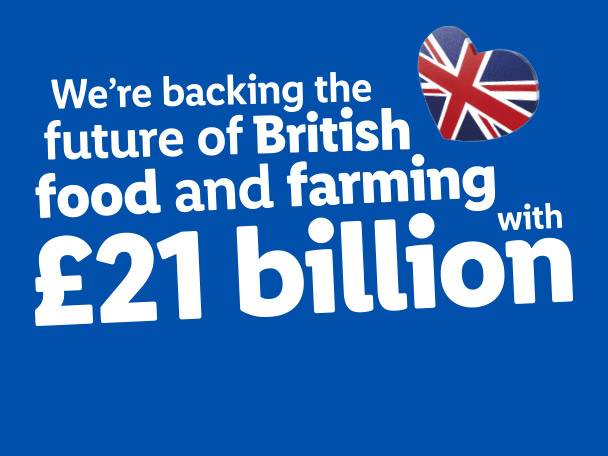
Moving our fleet to Biogas
At Lidl, we’re on a mission to reduce the impact of our delivery fleet and make significant changes that contribute to a greener and cleaner environment.As part of our long-term plan, we’re switching our vehicles that deliver our products from our regional distribution centres to Lidl stores, from diesel to biogas.
Each year between now and 2030 we aim to continue converting our fleet to CNG by gas or other alternative fuels. We want our customers to feel they’re making decisions that positively impact the environment when shopping with us.

What is Biogas?

Biogas (or Biomethane) is a renewable fuel produced sustainably through anaerobic digestion. This is a process where bacteria breaks down organic matter such as food and animal waste as well as rubbish and sewage in the absence of oxygen to produce biogas which can then be used as vehicle fuel.
Producing up to 85%(1) less harmful Greenhouse Gas (GHG) emissions, biogas is a sustainable alternative to traditional fossil fuel-based diesel and is a clean, carbon-neutral source of energy.
How does moving to Biogas help tackle climate change?
Transport accounts for almost 30%(2) of the UK’s total GHG emissions, with Heavy Goods Vehicles contributing 5%. By switching to biogas, we’re able to reduce carbon emissions and contribute to a sustainable energy future.
By converting the methane already present in organic waste, the energy is productively used and has a lower impact on the environment compared to fossil fuels.
2) Reference: Department of Transport, Greenhouse gas emissions from transport in 2022. Learn more here
How is Lidl's food waste used to produce Biogas?
Our food waste is sent from the store to the RDC (Regional Distribution Centre). From there, it is sent to our waste contractors and AD (Anaerobic Digestion) plants in Scotland, the South West, North East and Northampton.
The food waste is converted to biogas at the AD plant and the biogas is consequently pumped into the national grid, avoiding the need for additional trucks to transport fuel across the country.
Biogas can then be taken out at fuelling stations and used as fuel for trucks.
Find out more about our sustainability initiatives
 Prevented Ocean Plastic
Prevented Ocean PlasticWe’re the first UK supermarket to launch new packaging using plastic which would have otherwise ended up in the ocean. Find out more here.
 Our future investment
Our future investmentFind out how our £21 billion investment has supported the next generation of British food and farming.
 Teaming up to Tackle Hunger
Teaming up to Tackle HungerFind out more about how we’re helping to make sure no families have to go hungry in the future.